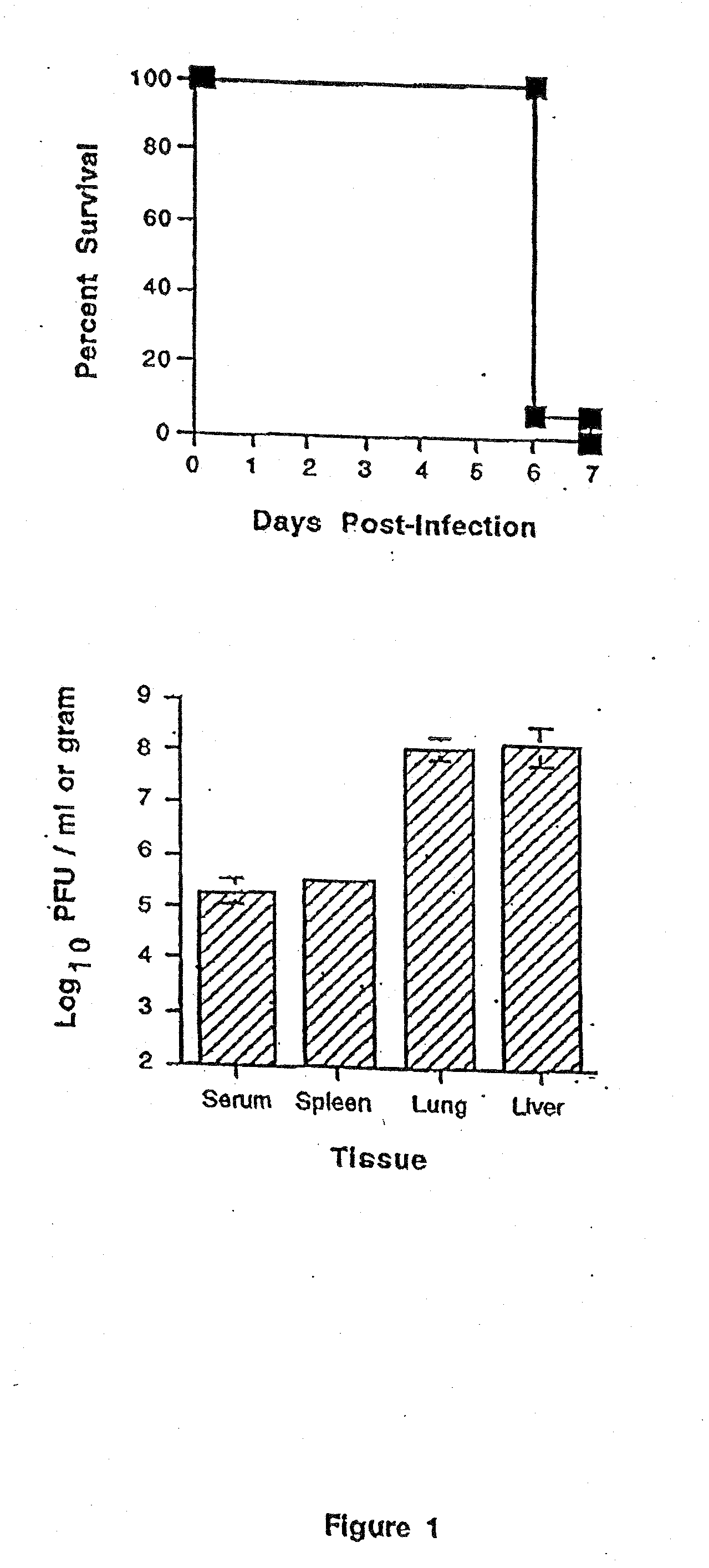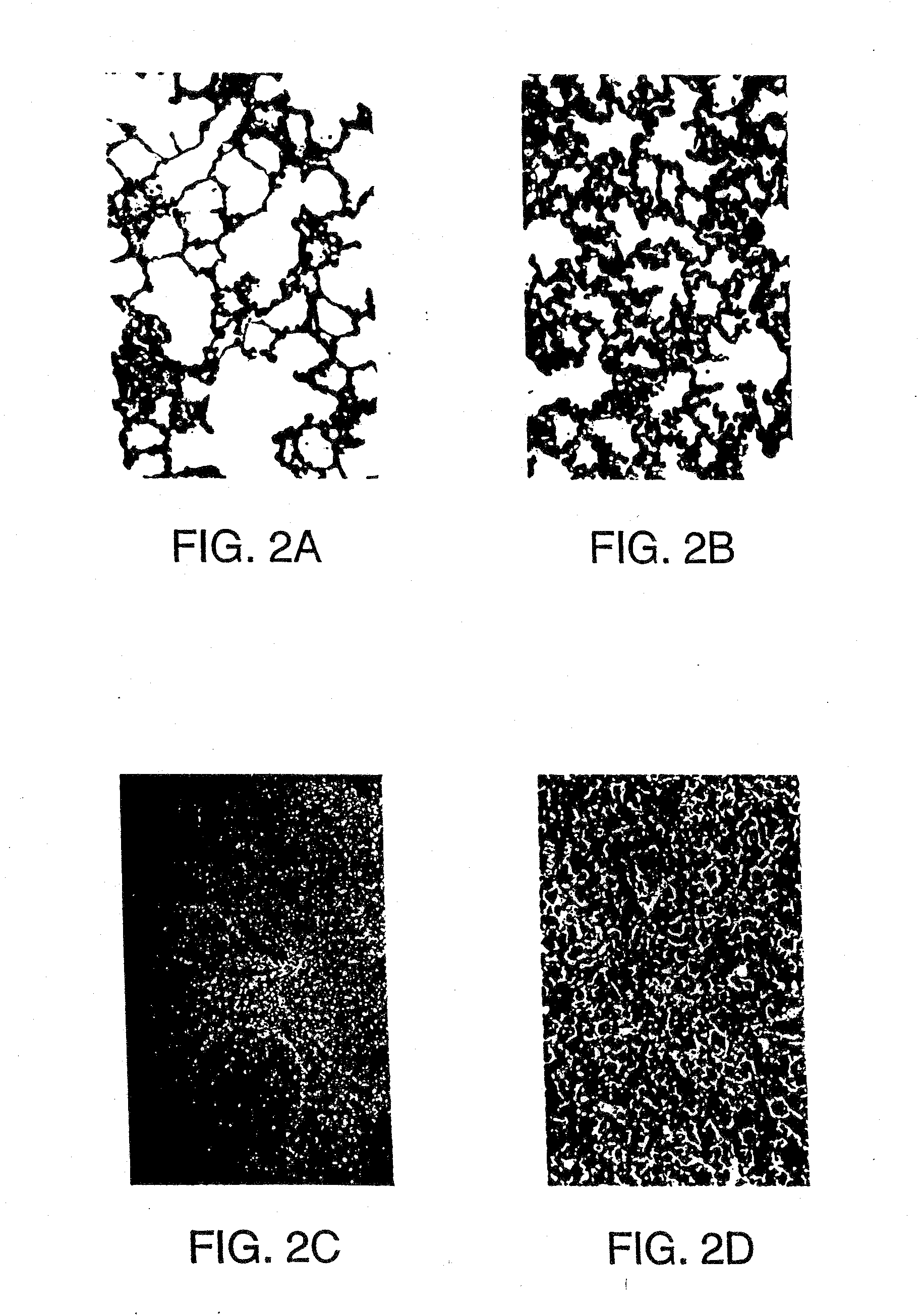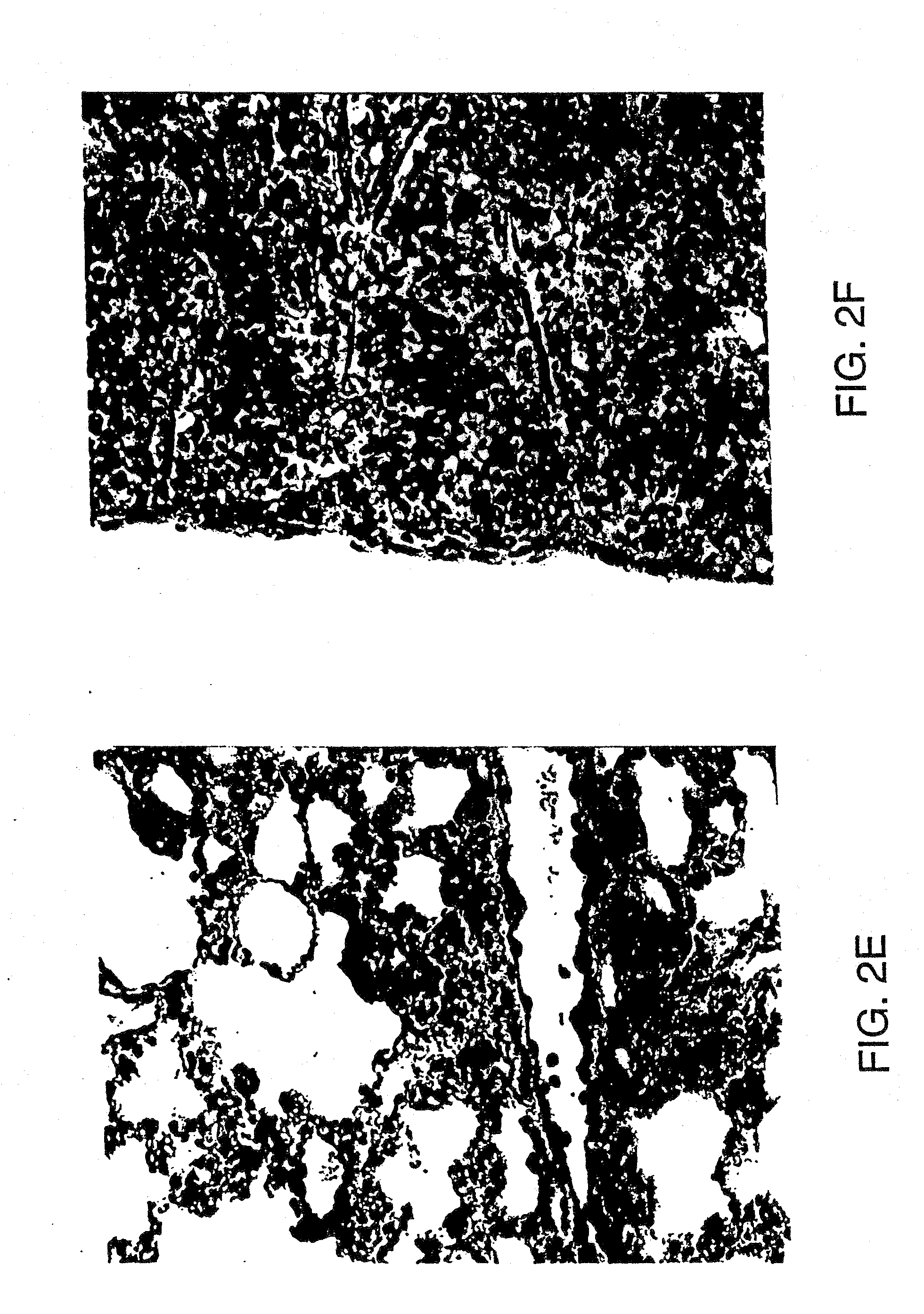Reversal of viral-induced systemic shock and respiratory distress by blockade of the lymphotoxin beta pathway
a technology of lymphotoxin beta and blockade, which is applied in the field of treating viral-induced systemic shock and respiratory distress, can solve the problems of little known about the pathogenesis of these viruses and how to effectively treat the thousands of patients
- Summary
- Abstract
- Description
- Claims
- Application Information
AI Technical Summary
Benefits of technology
Problems solved by technology
Method used
Image
Examples
example
[0092]Tumor necrosis factor (TNF α) plays a key role in facilitating acute shock responses to viral infections and other immunogens (K. C. F. Sheehan, N. H. Ruddle, and R. D. Schreiber., J. Immunol., 142, 3884 (1989); G. W. H. Wong and D. V. Goeddel Nature 323, 819 (1986); B. Beutler, I. W. Milsark, A. Cerami, Science 229, 869 (1985); F. Mackay, P. R. Bourdon, D. A. Griffiths, et al. J. Immunol. 159, 3299 (1997); P. D. Crowe, T. L. VanArsdale, B. N. Walter, et al. Science 264, 707 (1994)). During episodes of Dengue Fever involving shock, levels of TNFα in sera from patients are elevated as are levels of soluble TNFR-75 (D. Hober, et al., J. Trop. Med. Hyg., 48, 324 (1993); D. B. Bethell, K. Flobbe, C. X. T. Phuong, et al., J. Infect. Dis., 177, 778 (1998)). We measured TNFα levels in the sera of mice infected with a variant of lymphocytic choriomeningitis virus, LCMV, Clone 13 (LCMV-13) (HH, II). TNFα levels in the sera of mice infected with LCMV-13 were found to be just above the l...
PUM
| Property | Measurement | Unit |
|---|---|---|
| concentration | aaaaa | aaaaa |
| temperature | aaaaa | aaaaa |
| soluble | aaaaa | aaaaa |
Abstract
Description
Claims
Application Information
 Login to View More
Login to View More - R&D
- Intellectual Property
- Life Sciences
- Materials
- Tech Scout
- Unparalleled Data Quality
- Higher Quality Content
- 60% Fewer Hallucinations
Browse by: Latest US Patents, China's latest patents, Technical Efficacy Thesaurus, Application Domain, Technology Topic, Popular Technical Reports.
© 2025 PatSnap. All rights reserved.Legal|Privacy policy|Modern Slavery Act Transparency Statement|Sitemap|About US| Contact US: help@patsnap.com



